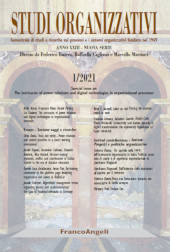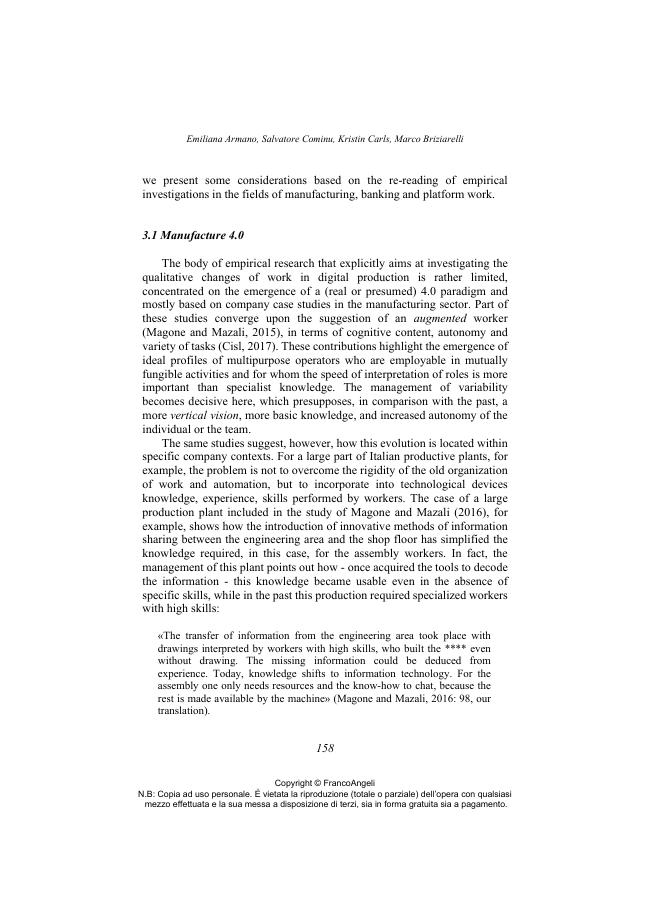Connectivity and human capacity in digital transformation : the exploratory hypotheses of hyper industrial
146-169 p.
The present contribution interprets current digital transformations of work and related power dynamics through the lens of Alquati's concept of hyperindustrial society. The paper starts from a reelaboration of Alquati's thought, mainly on the basis of the rereading of some unpublished writings dating back to the 1990s and 2000s. In particular, it takes up the categories of (a) hyperindustrialisation, (b) enhancement versus impoverishment of human capacity, and (c) machinic subjectivity, and reconsiders them in light of current technological developments. These categories are then used as tools for analyzing three work contexts in which processes of digitization appear to be particularly intense: manufacturing, banking, and work in digital distribution platforms.
This empirical exploration shows how current transformations of work can be interpreted as effects of a hyperindustrial mode, understood as an abstract organizational logic capable of dividing, standardizing and reassembling objects and knowledge. [Publisher's text].
Questo contributo interpreta le attuali trasformazioni digitali del lavoro e le relative dinamiche di potere attraverso la chiave interpretativa data dal concetto alquatiano di società iperindustriale. L'articolo si sviluppa a partire dalla rielaborazione del pensiero di Alquati, principalmente sulla base della rilettura di alcuni suoi scritti inediti risalenti agli anni Novanta e Duemila. In particolare, si richiamano le categorie alquatiane di (a) iperindustrializzazione, (b) potenziamento versus impoverimento delle capacità umane, e (c) soggettività macchinica, e le si ripensano alla luce degli attuali sviluppi tecnologici. Queste categorie sono poi utilizzate come strumenti interpretativi per analizzare tre contesti lavorativi in cui i processi di digitalizzazione sembrano essere particolarmente intensi: la manifattura, le banche e il lavoro nelle piattaforme digitali di distribuzione.
L'esplorazione empirica mostra nel dettaglio come le attuali trasformazioni digitali del lavoro possano essere interpretate alla luce dell'iperindustriale, inteso come logica organizzativa astratta capace di predividere, standardizzare e riassemblare oggetti e conoscenze. [Testo dell'editore].
Ist Teil von
Studi organizzativi : XXIII, 1, 2021-
Artikel aus derselben Ausgabe (einzeln erhältlich)
-
Informationen
ISSN: 1972-4969
THEMENBEREICHE
KEYWORDS
- Capitalismo digitale, cambiamento tecnologico, soggettività, potere, iperindustriale, capitalismo di piattaforma
- Digital capitalism, technological change, subjectivity, power, hyperindustrial, platform capitalism



